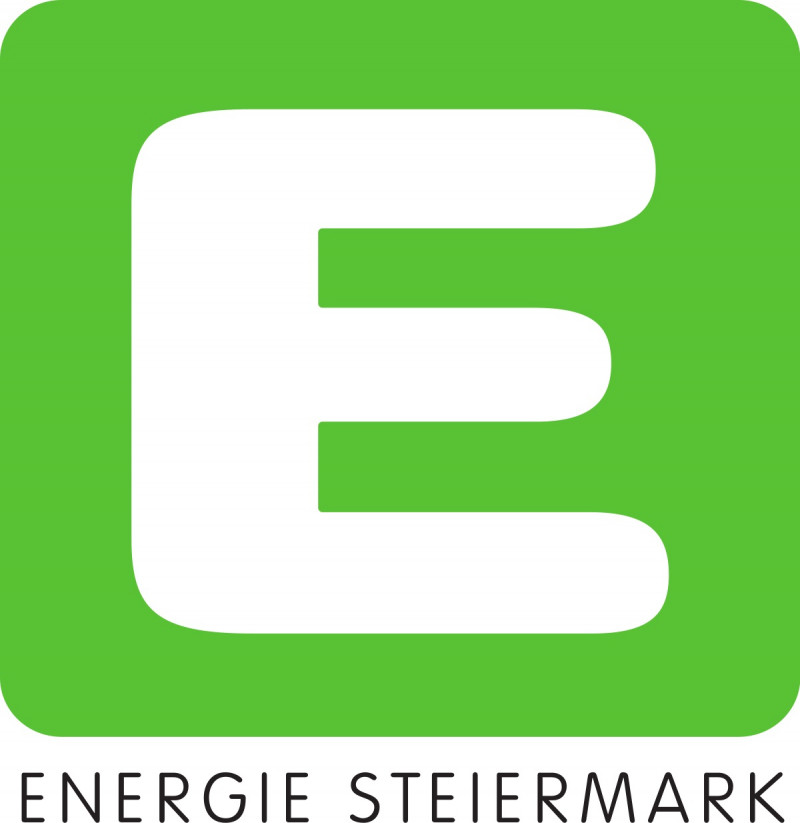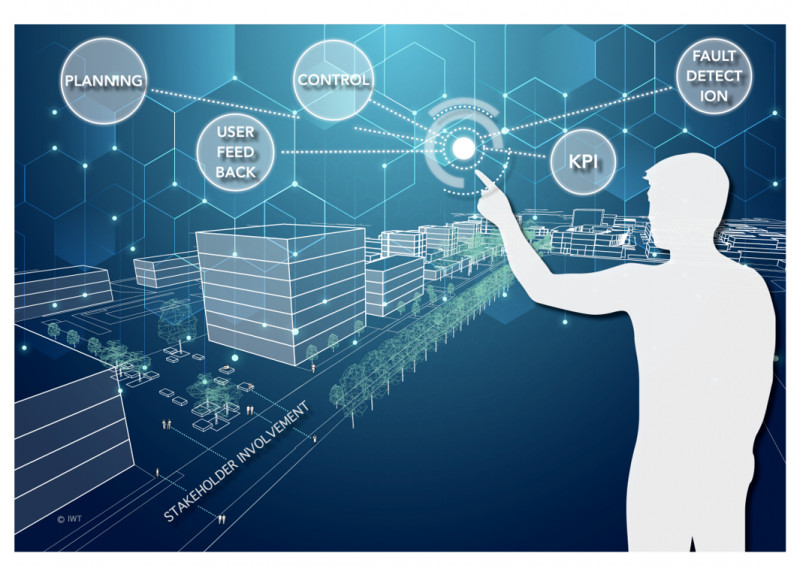User-GRIDS: User-Centered Smart Control and Planning of Sustainable Microgrids
Climate protection requires a massive reduction in greenhouse gas emissions from existing buildings. Modern digital systems promise more targeted operation and planning of energy systems with strongly fluctuating use and large shares of volatile energy sources by means of new "Digital Energy Services" (DES).
The UserGRIDs project is developing and testing methods for operating urban district energy systems in a user-centred and efficient manner, as well as for the further planning of the energy infrastructure. The INNOVATION DISTRICT INFFELD serves as the basis for development. With 125 000 m² of gross floor area and its mixture of office, teaching and project-based laboratory operations, the campus is an ideal example of strongly fluctuating usage requirements.
The basis is an ICT platform that brings together all energy related data, including measurements from the energy systems (temperatures, performance data, etc.) and data from other digital systems (room occupancy, weather and price forecasts, etc.). The platform makes the data available to the DES "Energy Management" and "Energy Structure Planning" and transmits their feedback back to the campus. Users are also given the opportunity to interact with the DES in real time.
The DES Energy Management extends the control systems of the buildings to an all-encompassing, self-learning control concept. User data flow into the forecasts and the objectives of the control system. The aim is to minimise emissions and ensure economical operation through optimum management of energy storages and the integration of renewable sources. External communication ensures intelligent integration into higher-level urban supply systems.
Within Energy Structure Planning, detailed transient models of the thermal and electrical energy system of the individual buildings and the superordinate campus infrastructure are developed and validated in order to be used for evaluation of further structural developments. Stakeholders are involved and key performance indicators (KPIs) are defined. Simulations evaluate the KPIs of different development variants.
Both system transformations, such as integrating energy storages or the exchange of energy technologies and the expansion of photovoltaic use on the campus, as well as the anticipated growth to 185 000 m² gross floor area are evaluated.
The developments are formulated as model solutions which are used as a basis for the development of business models. The INNOVATION DISTRICT INFFELD sees itself as a pioneer in the use of new DIGITAL ENERGY SERVICES in order to increase the user satisfaction of an urban district, to optimally operate the energy system and to consistently drive the expansion towards a zero-emissions district.
Projektlaufzeit
2021-03-01 - 2024-02-29
Supported by
FFG - 3rd Call – Energy Model Region (Vorzeigeregion Energie) 

Dieses Projekt wird aus Mitteln des Klima- und Energiefonds gefördert und im Rahmen der Vorzeigeregion Energie durchgeführt.
Projektpartner
Institut für Wärmetechnik, TU Graz (Konsortialführung)
Institut für Softwaretechnologie, TU Graz
Gebäude und Technik, TU Graz
Institut für Regelungs- und Automatisierungstechnik, TU Graz
Institut für Bauphysik, Gebäudetechnik und Hochbau, TU Graz
Institute of Interactive Systems and Data Science, TU Graz
BEST - Bioenergy and Sustainable Technologies GmbH
Bundesimmobiliengesellschaft m.b.H.
EAM Systems GmbH
Energie Steiermark AG
EQUA Solutions AG
Fronius International GmbH






Contact

Valentin KAISERMAYER
valentin.kaisermayer@best-research.eu
Area Management

Markus GÖLLES
markus.goelles@best-research.eu

